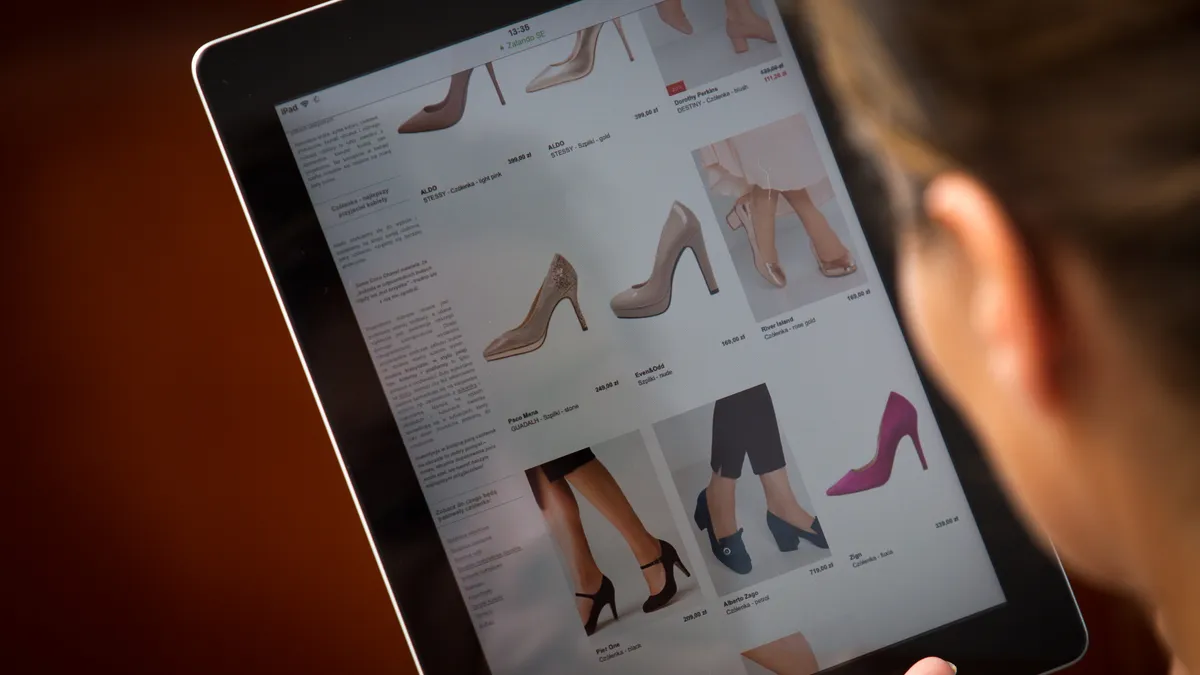Dive Brief:
- Amazon's use of the Vine reviews program for its own private-label products gives those items an unfair advantage over third-party marketplace items, according to marketplace merchants and reviews watchdogs cited in a report from Bloomberg. Vine distributes free products in exchange for helpful reviews and was created to provide a middleman between retailers and reviewers so the process couldn't be gamed. But as Amazon has quickly scaled up its own private label assortment over the past two years and used Vine to gain reviews for those products, reviewers could feel obligated to provide positive reviews in exchange for free items, resulting in Amazon's products being pushed up in search rankings on the site.
- The complaints of review manipulation are especially important in Europe, where Amazon is subject to an E.U. antitrust investigation over whether the company places an advantage on its private-label products over competitors'.
- Amazon hasn't specifically addressed the concerns over its Vine program but, in a statement to Bloomberg, said Vine shoppers can choose from any "eligible product," whether it's private-label or from a vendor, and the same "guardrails" are in place for both. Sources said Amazon could open Vine to marketplace merchants, who currently are excluded from the program and can only use the "early reviewer program," which prohibits free products in exchange for reviews and is more restrictive than Vine.
Dive Insight:
Nearly half of online shoppers start their product searches on Amazon, according to a recent eMarketer report. With the e-commerce giant's own private-label products being pushed up search rankings thanks to compensated reviews through Vine — a program that not all merchants on the e-commerce platform have access to — it's clear to see why some are pointing to Amazon's unfair advantage. While the issue is a big focus in Europe at the moment, Amazon's rapid growth this year as an advertising platform will likely draw increased scrutiny over its business practices by U.S. watchdogs at a time when the other major digital platforms Google and Facebook are in hot water over a variety of issues, including a lack of transparency, unsafe data practices and antitrust issues.
Similar to big-box retailers, Amazon has rolled out new private-label products over the past few years, and its line now includes batteries, diapers, phone chargers, tortilla chips, dresses, foam mattresses and microwave ovens. Sales of Amazon's brands are expected to grow to $25 billion by 2022, according to SunTrust, Robinson Humphrey Inc., referenced in the Bloomberg report.
As with most retailers and brands, Amazon relies on online reviews to drive sales and help consumers find new products. Eighty-two percent of U.S. adults say they sometimes or always read online reviews when they make new purchases, and more than two-thirds of review readers think reviews are "generally accurate," according to a 2016 Pew Research Center study cited by The New York Times.
Amazon cracked down on fake reviews two years ago when it began prohibiting shoppers from receiving freebies from merchants directly in exchange for a review, after the company discovered that some merchants were using reviews to influence the platform's search algorithm, per Bloomberg. Under Vine, Amazon acts as a go-between for reviewers and vendors seeking exposure. Exchanging products for reviews is still allowed, as long as there's no direct contact between retail partners and consumers.
An example of how the program works included in the Bloomberg report is the Amazon Basics motor oil, which launched in July and has a 4.5-star rating on about 100 customer reviews, nearly as many as a similar product by the Valvoline brand, which has been sold on the site for six years. More than 80% of the reviews for the Amazon oil were from Vine, but Valvoline had no Vine reviews. A review watchdog graded the quality of the reviews for each, giving Amazon's reviews an F and Valvoline's an A.














